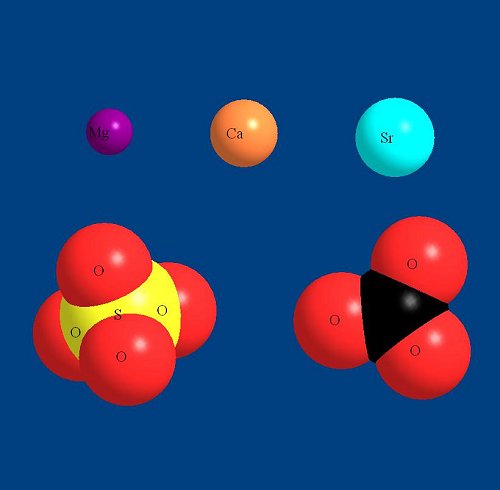OK, we have different opinions on the utility of strontium. My opinion is not based on lack of depletion in some systems, but simple nonutility.
IMO, and in the scientific literature, it looks and acts like calcium, and gets incorporated into calcium carbonate skeletons for that reason alone (and gets into abiotic precipitated calcium carbonate to the same extent), without causing any benefit or "need" by most organisms.
IMO, the only need by organisms are a very few unusual creatures (not corals) that are known to have a specific need for it. These include gastropods, radiolaria, and acantharia.
FWIW, the scientific literature has never identified strontium as something corals need.
This has more:

Aquarium Chemistry: Strontium and the Reef Aquarium
This article on strontium is the second of several that delve into a variety of issues involving magnesium and strontium.reefs.com
Agreed, I was about to link you to this
https://link.springer.com/article/10.1007/s00338-004-0369-y which I found here:
and then I realised you're actually referenced in the quote, lol.
I think that if strojntium depletion in my aquarium, anecdotally, and at least one others: https://www.reef2reef.com/threads/strontium-and-the-reef-tank.172464/ indicates it must have some biological purpose, even if it's not a critical function. the fact that coral colouration and the robustness of the tissue is visibly altered in 24 hours with no changes to the tank otherwise sould be validity enough to confirm it has utility within the coral tissue?
I'm genuinely curious because it seems my conclusions may be biased and I'm interested in removing those by getting to the bottom of this - given the parameters of the aquarium I currently run I believe the only way to avoid a tank crash is to identify and supplement missing elements however I've been dosing and identifying changes by watching the coral, and then undertaking testing to verify my dosages, rather than the inverse of chasing levels.
I'm disappointed I didn't take photos of the acropora looking 'dry' only to compare to less than 20 minutes later when their entire tissue mass appeared to increase, to explain what I mean














